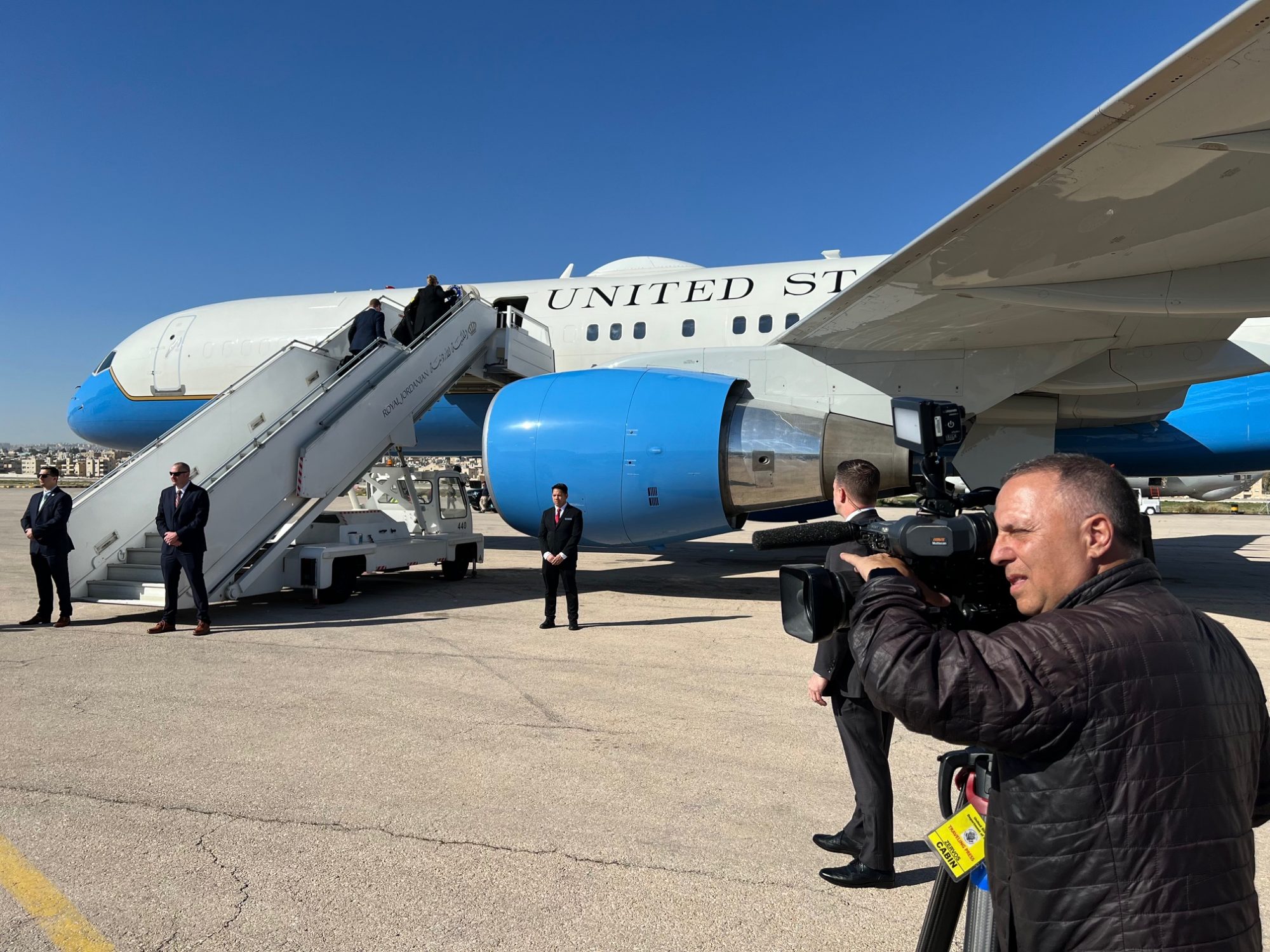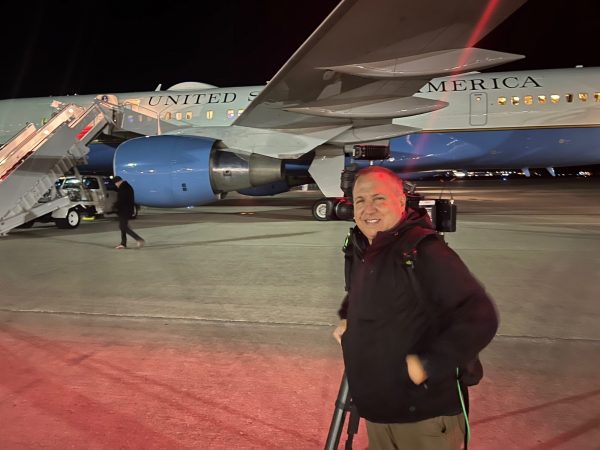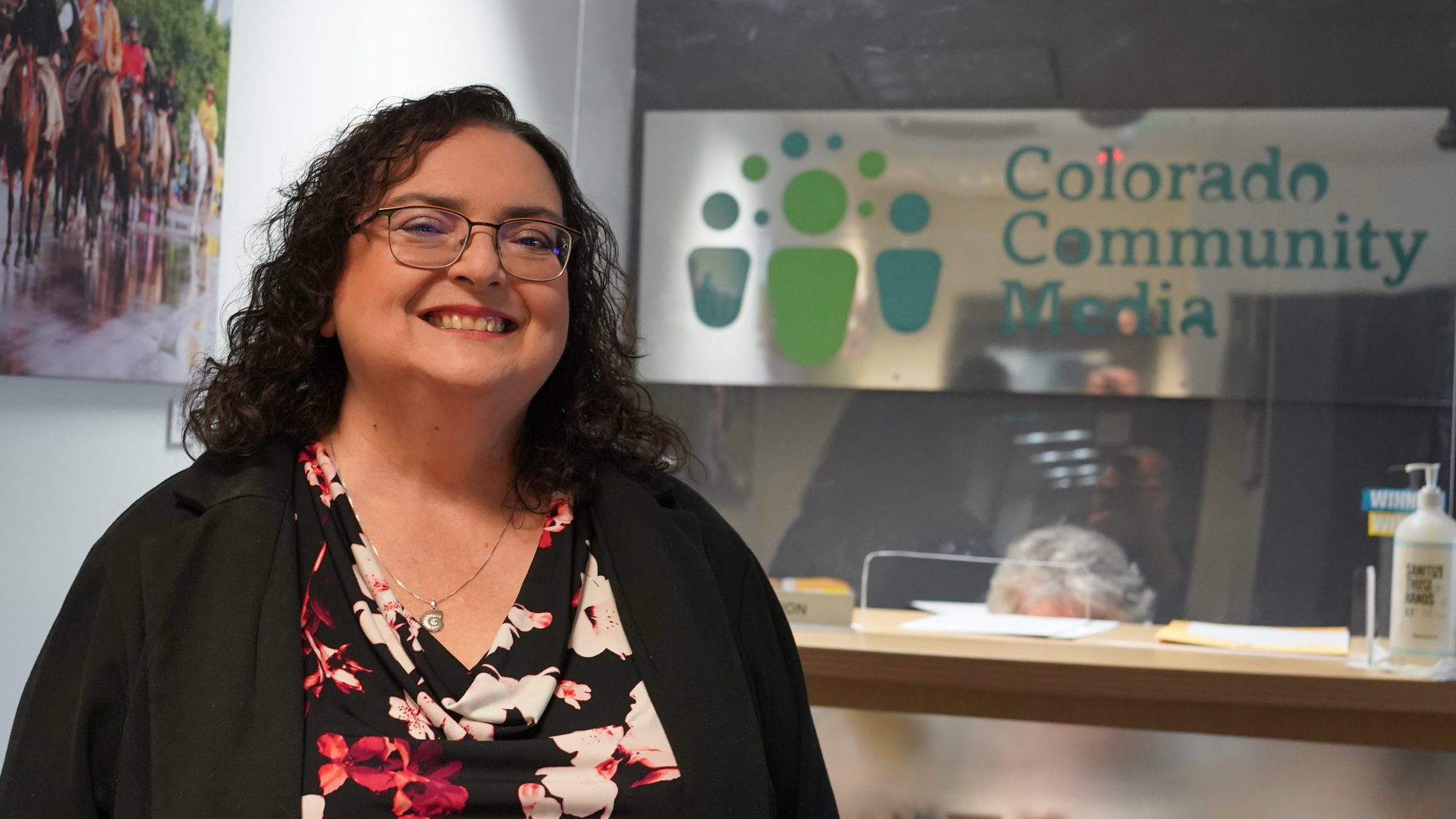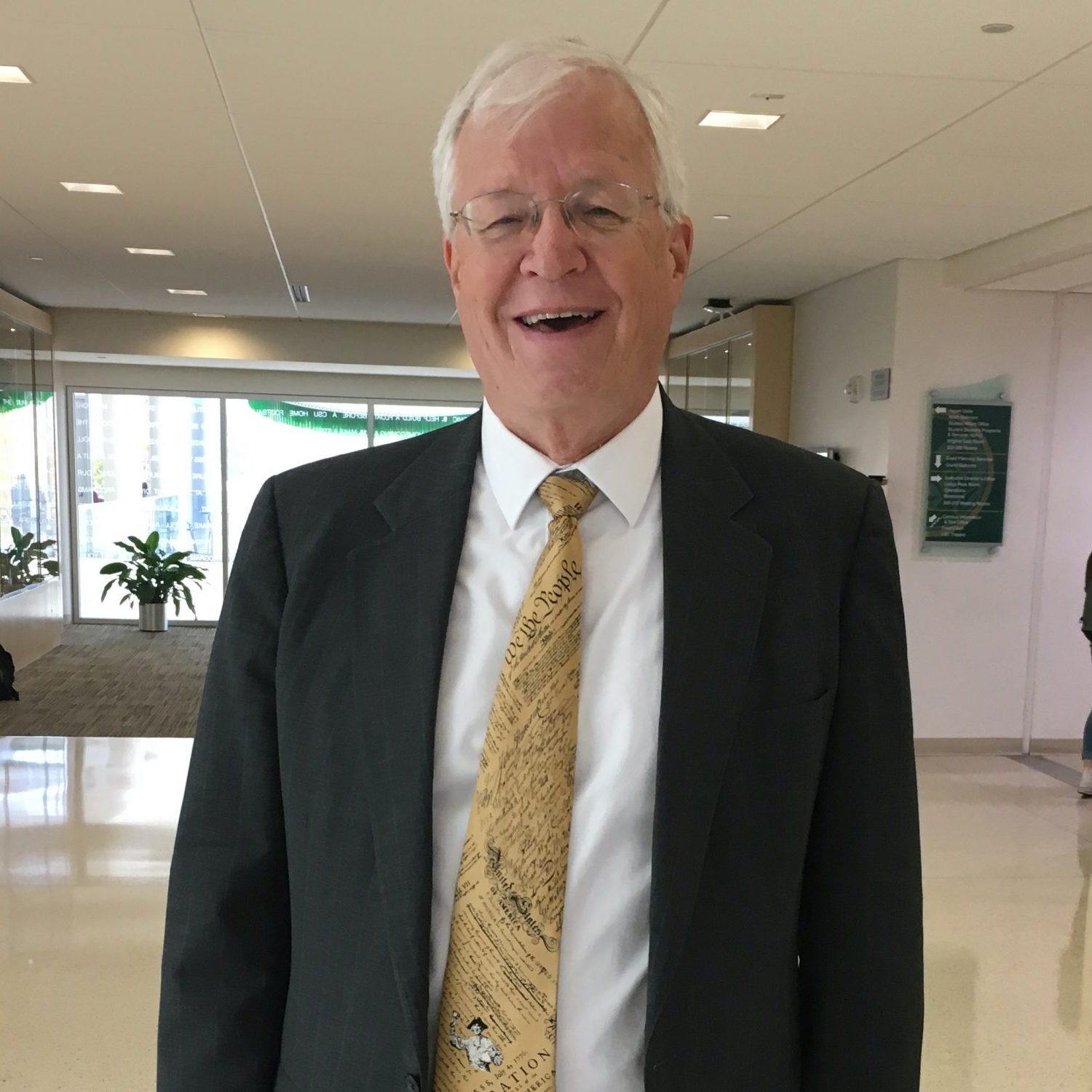
Photo: Stratis Zervos, 'JMC, '84, on assignment, covering Secretary of State Antony Blinken's departure from Andrews Air Force Base on a diplomatic mission to the Middle East.
The relationship between journalism and democracy is complicated and often perplexing. It’s been that way since some of the country’s first newspapers were a catalyst for the American Revolution more than 300 years ago. But today’s relationship is more convoluted. Media and politics offer an overwhelming flow of information, amplified by technology, polluted by propaganda, and tangled by disinformation and distortions.
It’s a fascinating information landscape with a great deal of opportunity for storytelling. Young, idealistic journalists often begin careers in traditional and emerging media venues with a goal of contributing to society, and while that impetus remains, the realities of journalism can be a struggle emotionally and financially.
Still, many remain committed, including three Colorado State alumni and faculty who apply their own styles of journalistic intentions to the democratic process.

Stratis (Strat) Zervos (’84) has been at it for 40 years as a video journalist, starting at KKTV in Colorado Springs before he moved to Washington, D.C., where he worked for a French TV network and ABC News before launching a freelance career with U.S. and European broadcast clients. “When I was sitting in classes and video editing bays at CSU, I could not have imagined the experiences I would have, nor the places where my CSU degree would take me,” Zervos said.
Zervos is committed to capturing reality through television, especially during a time when political backtracking and denials can convolute the democratic process.
“The importance of video is that it allows the viewer to see and hear for themselves what occurred and what was said by the politician. Once recorded, it lives forever despite a subject at times denying having ever made the statement in the first place,” he said.
In January 2024, Zervos traveled to the Middle East with U.S. Secretary of State Antony Blinken, who was on a diplomatic mission resulting from continuing concerns about escalations in war between Israel and Hamas. This is not an unusual assignment for Zervos. During his career he has traveled to 41 countries and all 50 states. He worked on stories in the Oval Office with every president since Ronald Reagan, traveled on Air Force One and Air Force Two, and recorded hundreds of interviews with U.S. senators and representatives. Recently, he covered a trip by First Lady Jill Biden to Romania and Slovakia, which included an unannounced drive across the border into Ukraine, where the entourage met with Ukraine First Lady Olena Zelenska.
“When working with the American Networks, 90% of my coverage is political in nature and reporting on the democratic process covering U.S. politics, the White House, presidential elections, Capitol Hill, the State Department, Pentagon, and the United Nations,” Zervos noted.
Despite the extensive experience, Zervos said the January 6, 2021 insurrection in Washington, D.C. was the story he remembers as most dependent on video to capture the complexity and duplicity that often comes along with the political process: “…the video of events that day, and immediately afterwards, show politicians in leadership voicing alarm and placing blame. Within weeks, the same politicians were denying their words which were objectively captured on video. When directly confronted with their previous statements, they denied and deflected, and even avoided the questions altogether.”

While Zervos asserts that video is deeply important for democracy on a national level, Linda Carpio Shapley (Speech Communication, ’92) has focused her career on local newspaper journalism. Shapley grew up about 30 miles east of Fort Collins near Gill, Colo., and started working as a ‘reporter’ at the age of eight. She felt compelled to create her own newspaper as a contribution to her mom’s collection of clippings about family and friends from local newspapers.
After more than 30 years in professional media, Shapley continues to enjoy an exceptional career with scores of notable awards. She is a member of the CSU Media Hall of Fame, and as managing editor of the Denver Post, she led the staff to four Pulitzer Prizes.
As noted in this CSU Magazine article, Shapley recently became publisher of Colorado Community Media, which creates local newspapers and news websites for 25 communities in and around Denver. Shapley has the same sort of journalistic dedication as Zervos but sees journalism’s role in democracy from a different point of view. She believes local journalism is critical for democracy and the health of communities. She is also convinced that the democratic process can help to save local journalism.
Earlier this year, Shapley traveled to Washington, D.C., along with Tim Regan-Porter from the Colorado Press Association, and Brian Porter from Prairie Mountain Media. Their goal was to talk to Colorado Senators and Representatives about two proposed laws that would provide tax credits to local journalism organizations and local advertisers. Shapley says this sort of lobbying is part of her role as a publisher, and she described her opinion of journalism’s role in democracy during an interview at Colorado Community Media headquarters in Englewood, Colorado.
Shapley and Zervos continue to work professionally after decades of commitment, but at 48 years and still going, Journalism and Media Communication instructor Jack Kennedy’s career is the longest. Kennedy, however, is focused on influencing aspiring journalists while they are still in secondary school. As far as he is concerned, the role of journalism is beyond critical in the democratic process.

“Quality journalism involves description, analysis, and editorial leadership, and now, more than ever, it is the best chance that we have at discovering and documenting truth,” Kennedy explained.
Kennedy teaches part time for JMC after a long and illustrious teaching career in scholastic journalism. He earned virtually every national award available for high school journalism excellence, including the Dow Jones National Teacher of the Year Award. He served as president of the Journalism Education Association, and as Executive Director of the Colorado Student Media Association.
As a national leader in journalism education, Kennedy is fascinated with the importance of the First Amendment, and the role of journalism in a democratic society. He is often invited to speak at large events, including the autumn Journalism Day event at CSU, where up to 1,500 high school students and teachers gather each fall semester since 2006. About 20 years ago, Kennedy decided to merge his experience in church choirs with a mission to help students remember the importance of the First Amendment. The result is a gospel rendition of what Kennedy believes are the 45 most important words in the Constitution of the United States.
Kennedy touts the ‘soul’ of journalism’s importance in democracy, and after scores of performances, the First Amendment’s role is no doubt more relevant for tens of thousands of audience members.
Shapley, meanwhile, continues her belief that newspapers have a critical role in democracy by connecting with people where they live with information that can help them enjoy better lives.
And Zervos, who spent his 40 years in news behind the camera, confirms his belief in the importance of visual documentation, stating, half in humor, and half seriously, that “If it’s not caught on camera, it never happened!”
